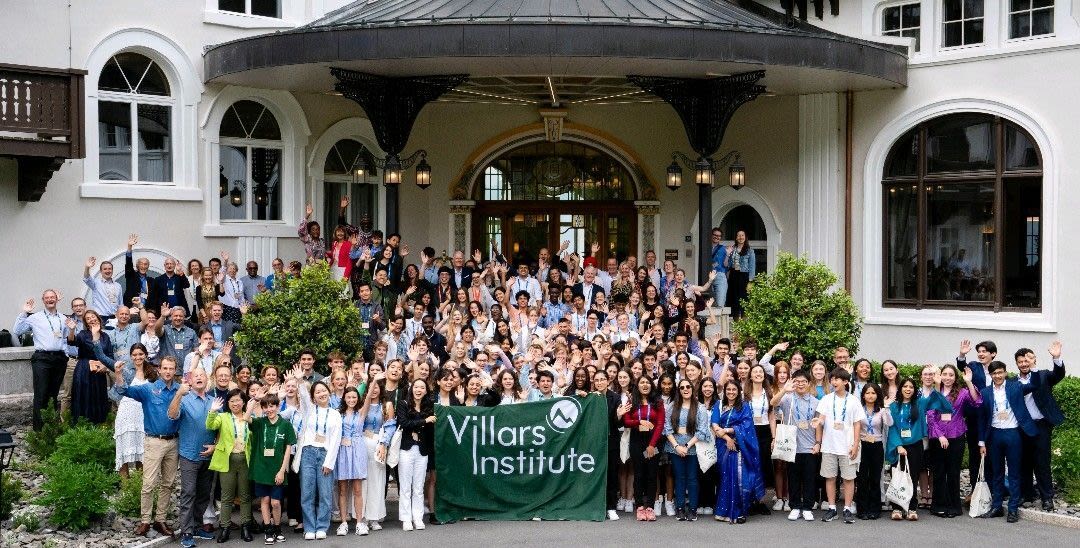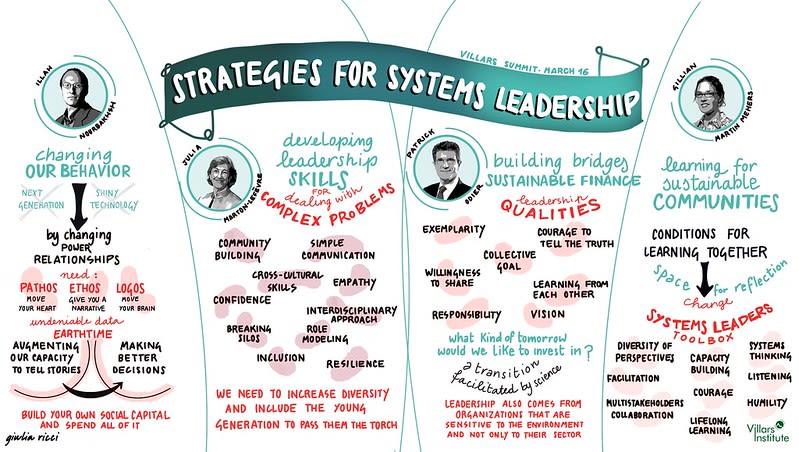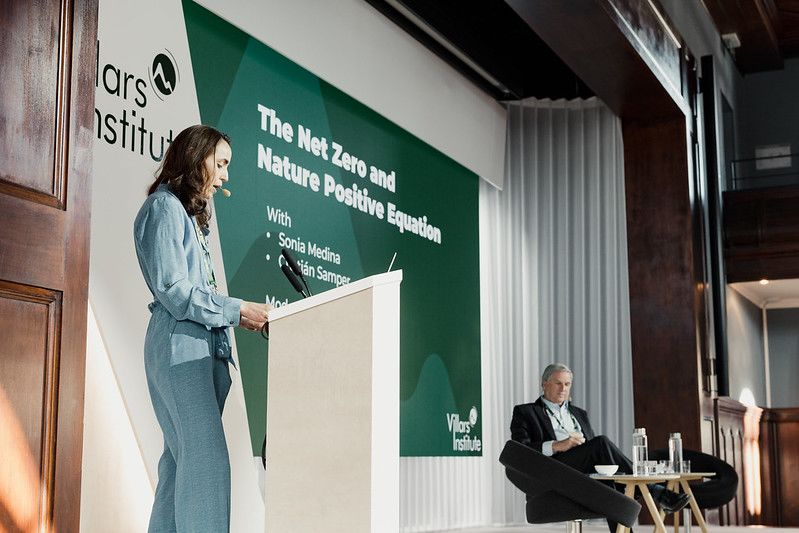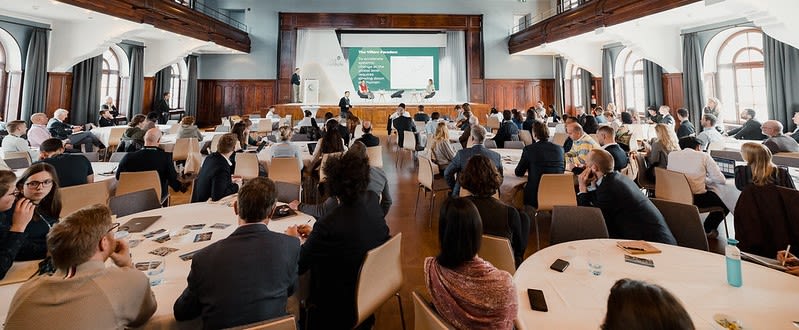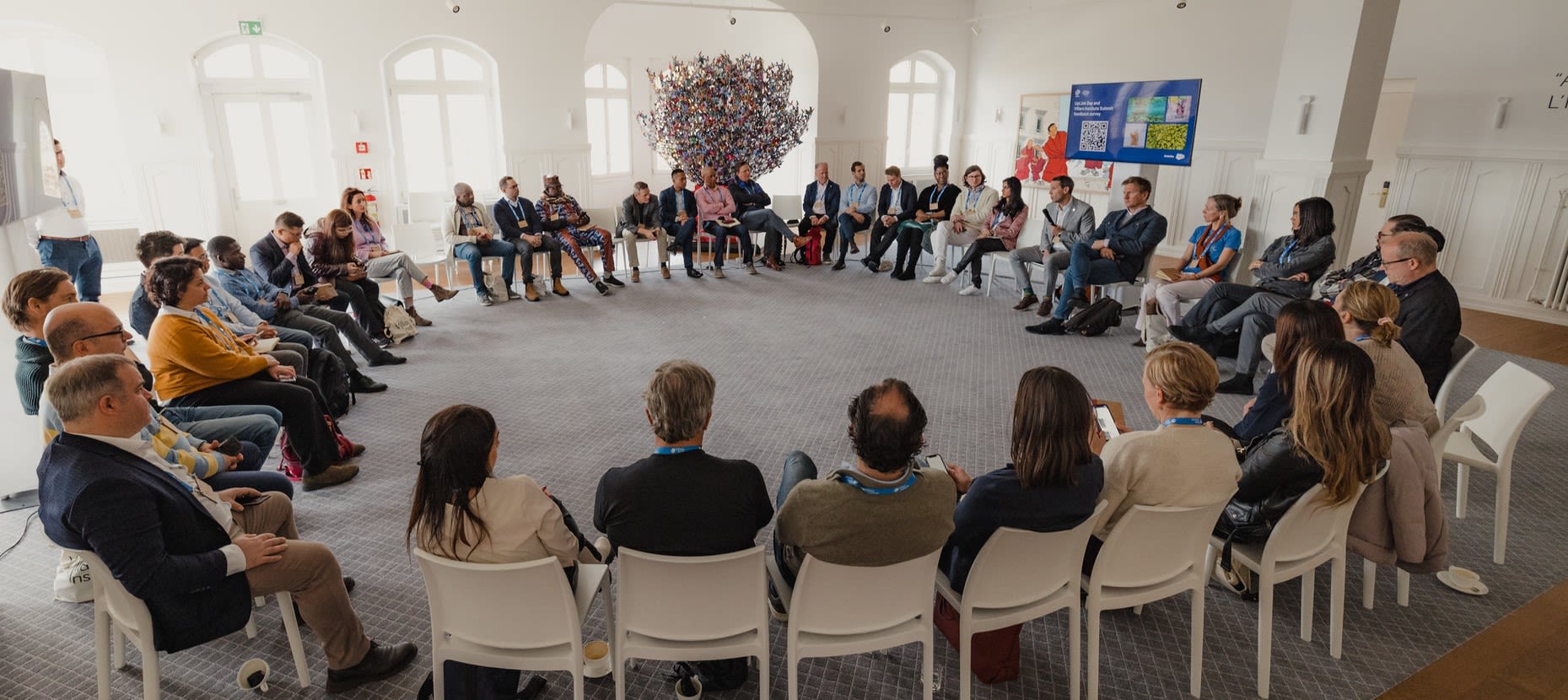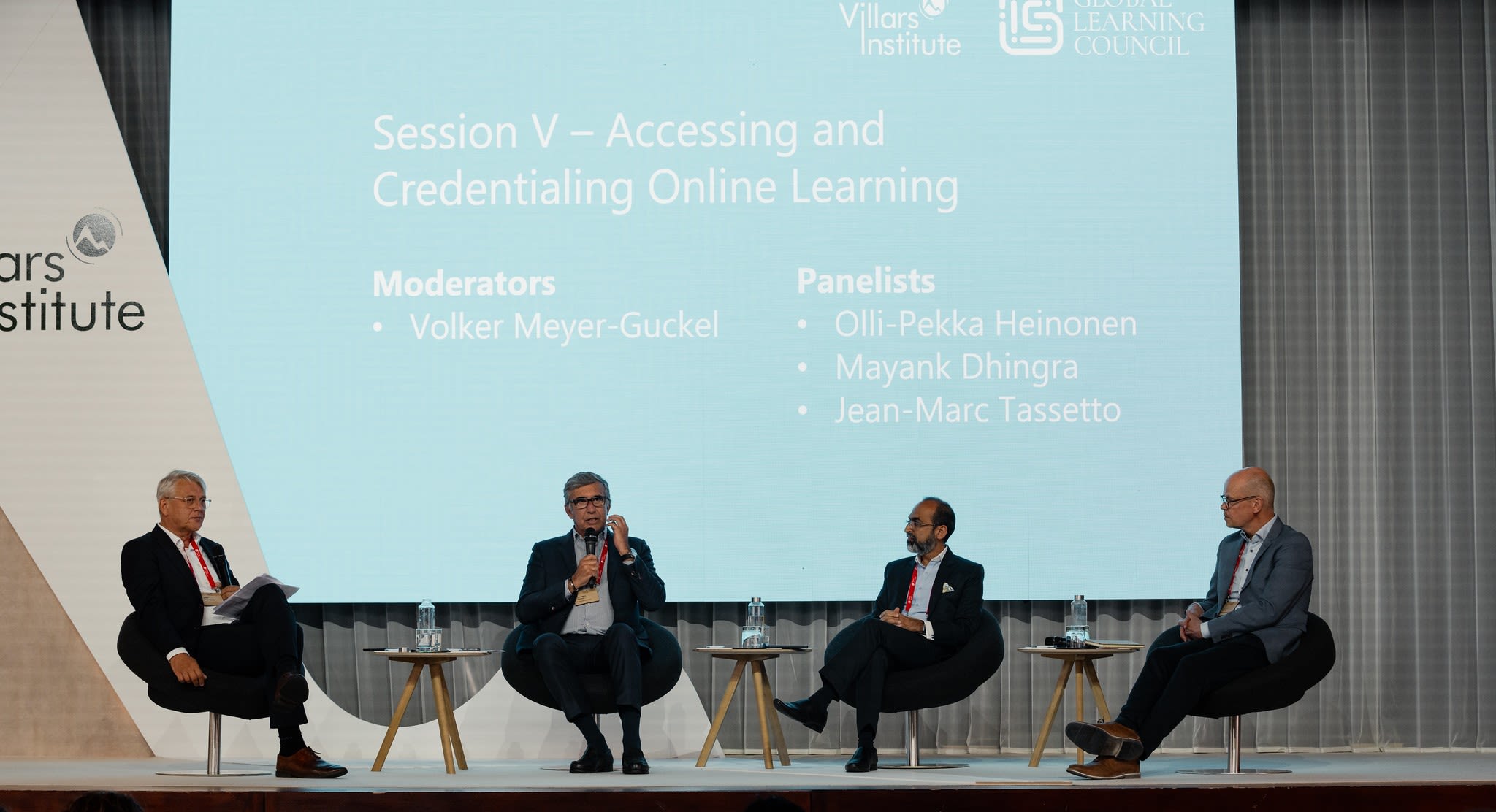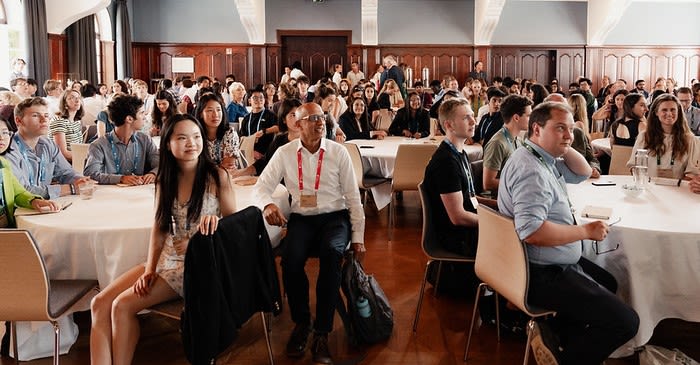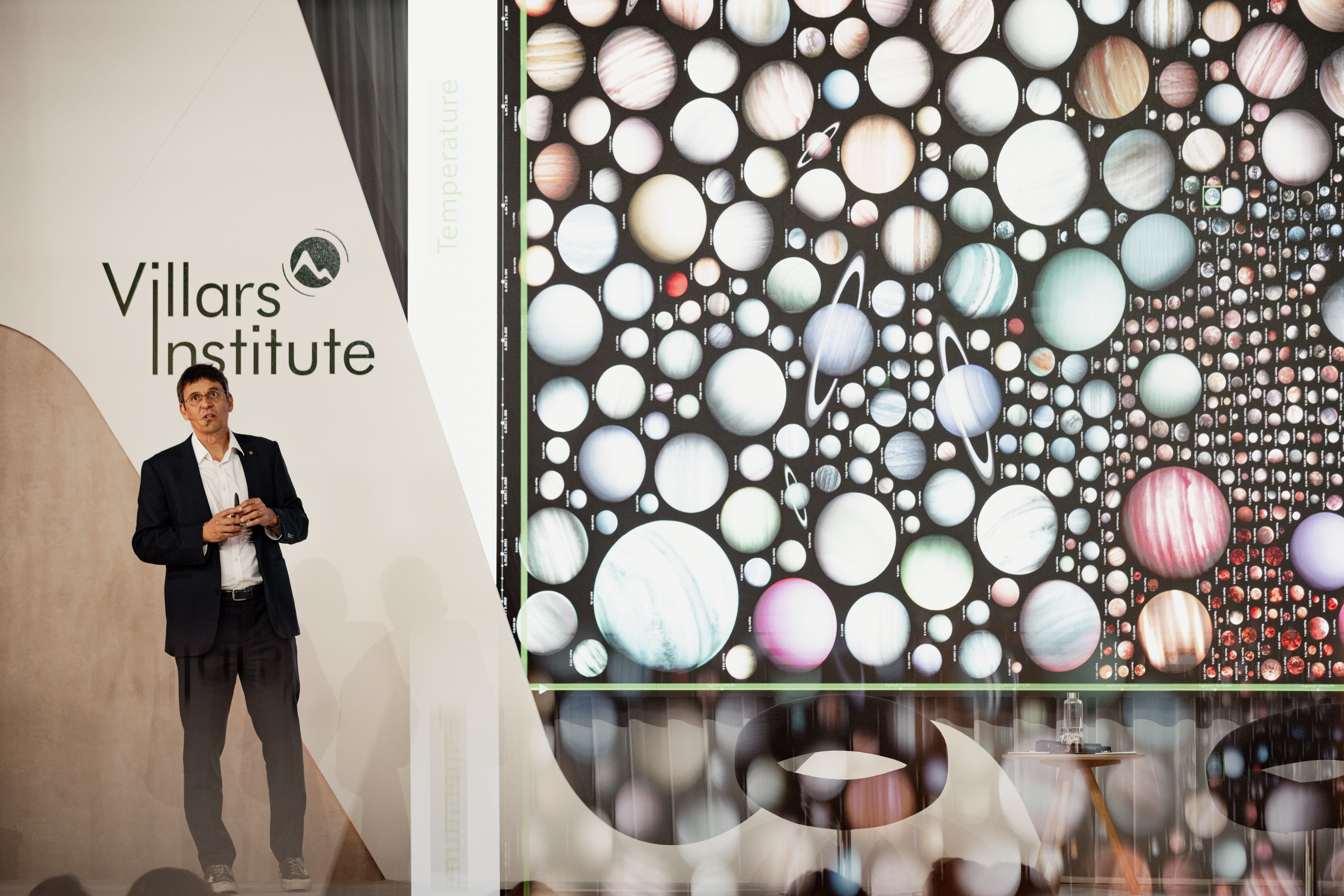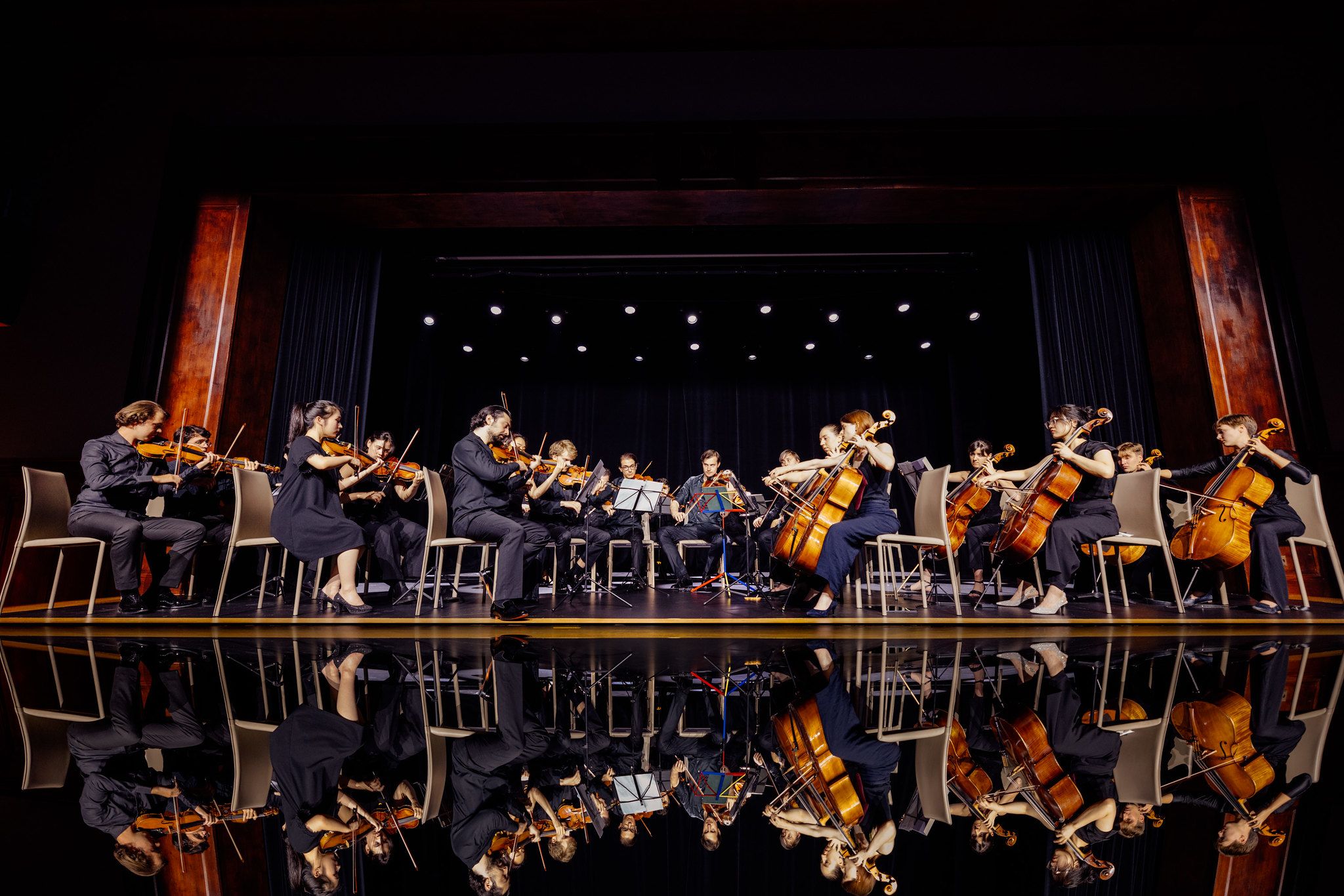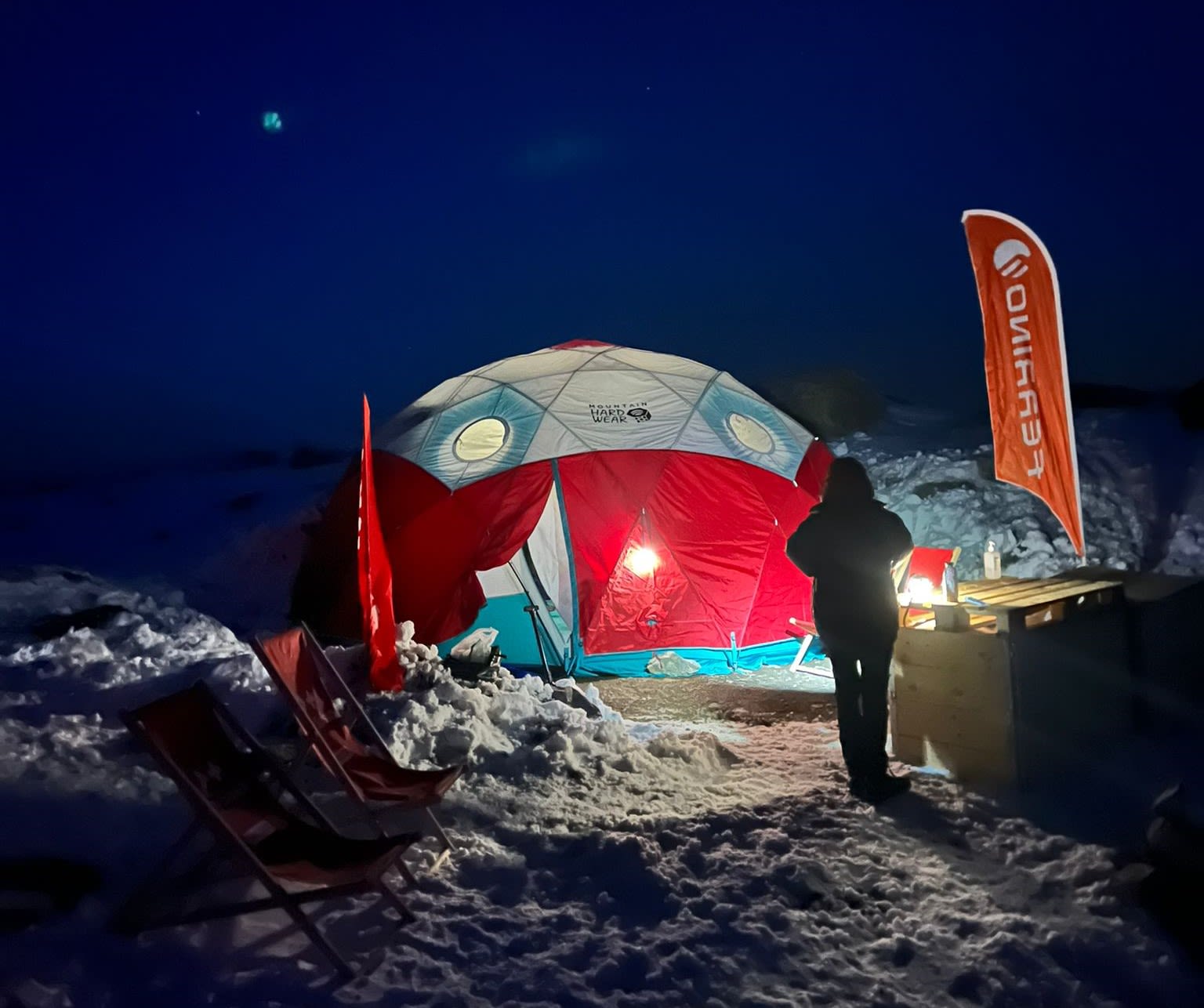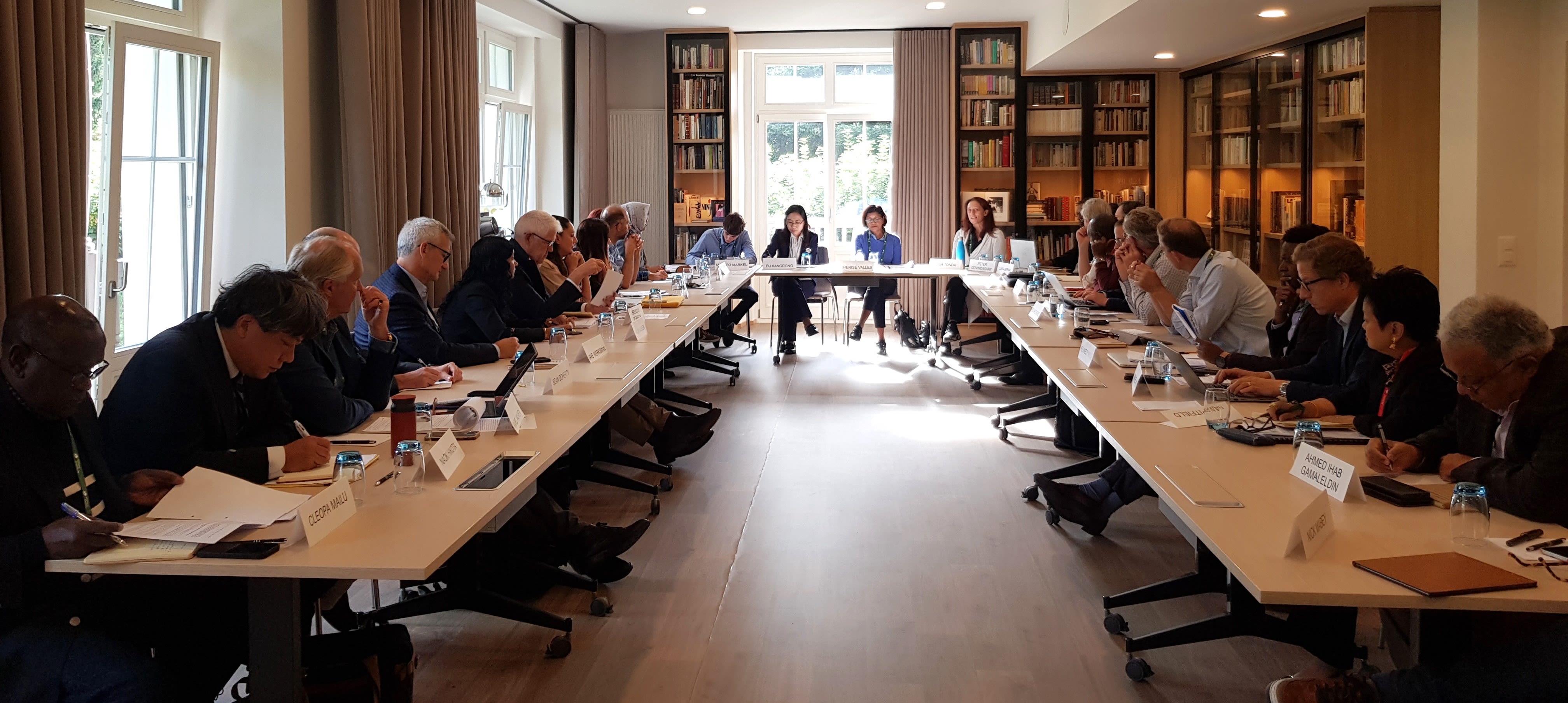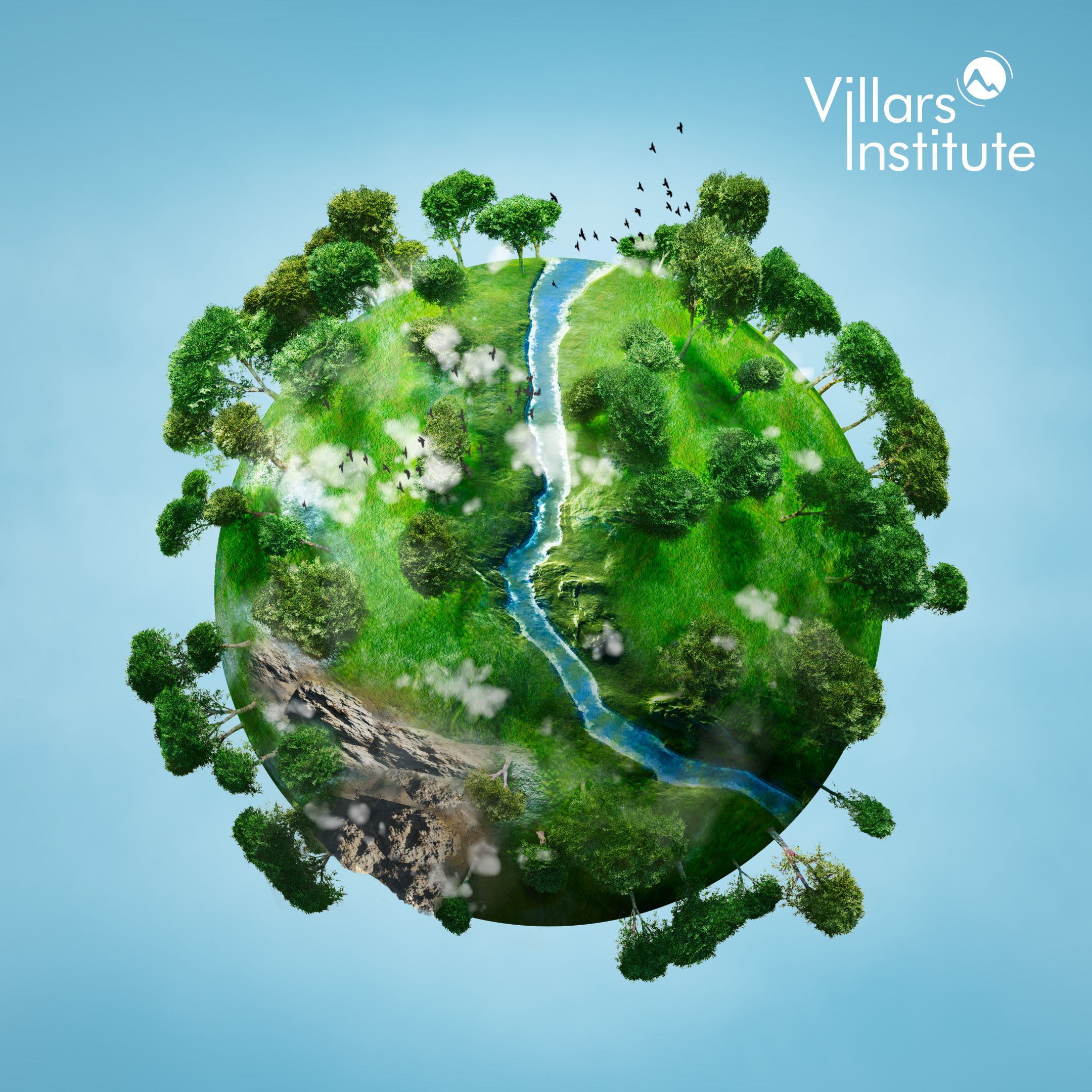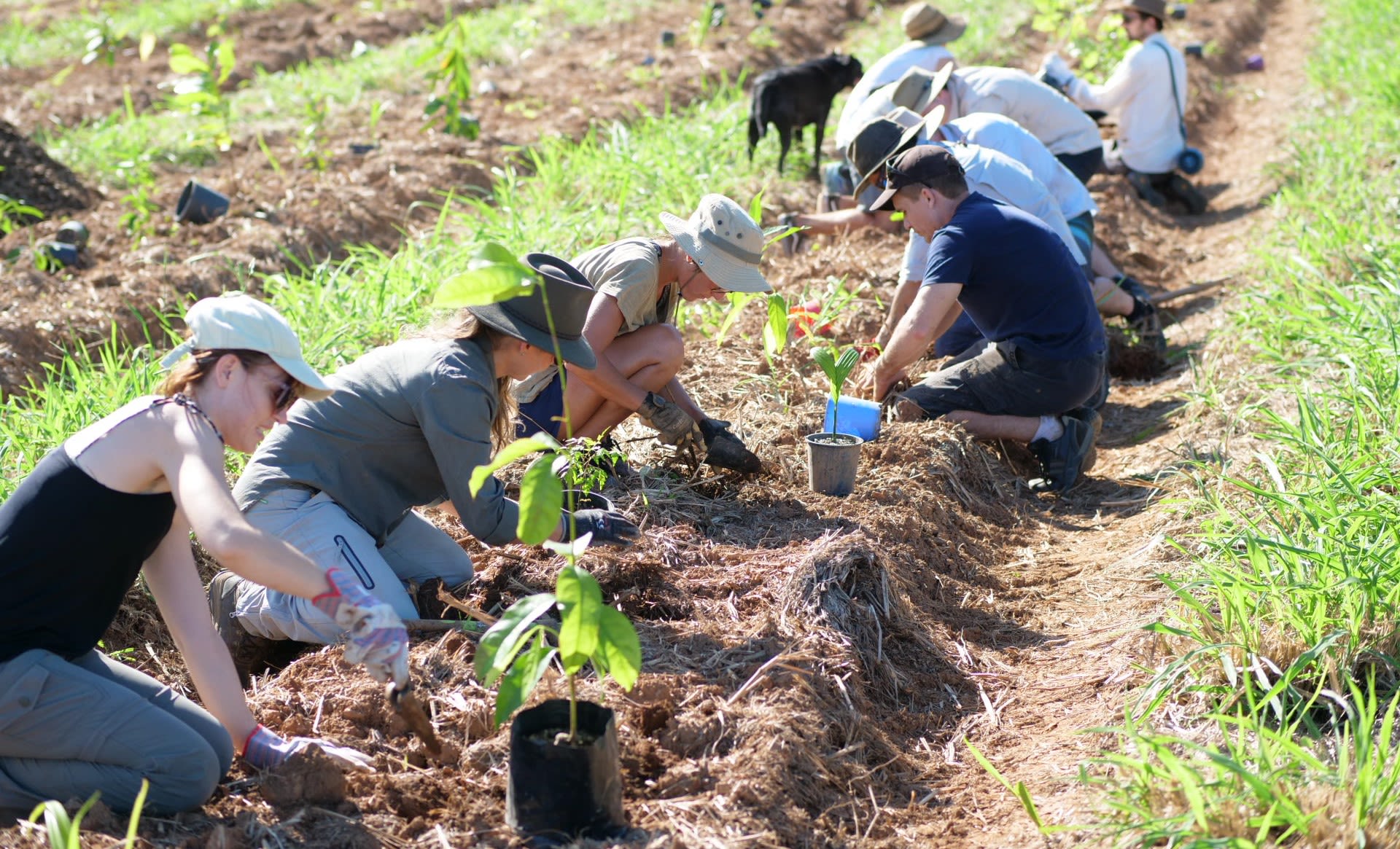Expanded the original content of the Knowledge Hub with 57 videos and 12 new articles highlighting the insights and experiences of our community of experts, educators and entrepreneurs. Our videos had over 80,000 views and our social media posts received over 11,000 likes. We have over 4,000 followers of the Villars Institute on LinkedIn (112% growth in 2023).
Nominated the 2nd cohort of +100 young leaders for the Villars Institute's global Fellowship Program. We welcomed Fellows from seven new talent partners in 2023: Akademeia High School (Poland); Anant National University (India); Leysin American School (Switzerland); London Academy of Excellence (UK); St George's International School (Switzerland); Philips Academy Andover (USA); and UWC Atlantic College (UK).
- Partnered with the Montreux Jazz Festival (MJF) to showcase five talented artists to perform at the inaugural MJF Spotlight Sessions in Villars. The historic Villars Palace hosted winter performance including English singer Cherise, who has opened for Michael Kiwanuka and Jamie Cullum; Belgian singer Mentissa, nominated for a Victoires de la Musique award; up-and-coming indie pop artist Flowerovlove; post-pop French artist Aime Simone and Scottish soul-pop singer Joesef. The partnership aims to amplify the power of music to bridge generational divides and to highlight how a new generation of musical performers can raise awareness about the health of our planet.
Launched a groundbreaking intergenerational learning program on systems thinking in partnership with the Minerva Project, a pioneer in education innovation and creator of Minerva University and various collegiate and university programs worldwide. The interactive online program features three modules and is designed independently with a certificate from both organizations upon its completion. It is designed around the Villars Institute’s concept of systems leadership and applies frameworks and toolkits from systems thinking, adaptive problem solving, and purpose-driven leadership to understand effective systems change and leadership.
Deepened our collaboration with UWC Atlantic College & International Baccalaureate (IB) to help the development of a new curriculum anchoring in Systems Thinking that is fundamentally action-oriented. Replacing written exams and classroom-based learning with relevant, ambitious, necessary work in complex and authentic real-world contexts. A select group of pioneering students (16-19 yrs) have been chosen to take part in the "Systems Transformation Pathways" as part of their two-year IB Diploma Program. The first cohort of the pilot program will participate in the Villars Symposium this summer. The long-term aim is to make the pilot program available to nearly 2 million students studying at over 5'000 IB World School in 159 countries.
Organized the inaugural Villars Institute Summit ("Villars Summit") which convened over 250 experts, entrepreneurs, executives, and philanthropists to work together to accelerate the transition to a Net Zero and Nature Positive economy. The premise of the Villars Summit is that climate, energy, food, and biodiversity challenges must be addressed holistically and require intergenerational solutions. The Summit was organized under the Chatham House Rule and Villars Fellows served as session rapporteurs.
Invited Professor Tim Flannery, a globally renowned scientist, explorer, and conservationist to give the inaugural Villars Distinguished Lecture to open the 2023 Villars Summit. He has published over 140 peer-reviewed scientific papers and has named 25 living and 50 fossil mammal species. His 32 books include the award winning The Future Eaters and The Weather Makers, which has been translated into over 20 languages. Professor Flannery’s lecture introduced the principles of tribal cooperation that he discovered during 20 years of field work with indigenous communities and how they can be applied to break down the silos and barriers preventing us from interdisciplinary and intergenerational collaboration.
Organized the 2nd global consultation of the EAT Lancet Commission 2.0 at the Villars Institute Summit. The Commission’s Co-chairs, Walter Willett, Johan Rockström, and Shakuntala Thilsted met with 24 Commissioners from 17 countries to tailor the groundbreaking "Planetary Health Diet" guidelines to different cultural and geographical contexts.
- Co-hosted over 60 global members of the Uplink Innovation Network of the World Economic Forum to work with pioneering start-ups featured in their global innovation challenge competitions and to highlight various impact initiatives in the 2023 Villars Summit program.
Organized a "Visualizing Data for Impact" workshop with Carnegie Mellon University CREATE Lab to introduce how to use to the EarthTime data visualization platform to help students, educators, and scientists create data-driven climate narratives to empower marginalized communities.
Co-convened the Annual Meeting of the Global Learning Council (GLC) in Villars. The GLC aims to advance the use of science and technology to improve the outcomes for learners of all ages and backgrounds around the world and the Villars Institute is proud to serve as its secretariat. The program was developed with the GLC Advisory Board, whose members include among others: Claudette Irere, Rwanda’s Minister of State for Education; Olli-Pekka Heinonen, Director General of the International Baccalaureate; a Fabiola Gianotti, Director General of the European Organization for Nuclear Research (CERN) and Bitange Ndemo, Kenya’s Ambassador to the Kingdom of Belgium and the European Union. The Global Learning Council was founded in 2014 by Professor Subra Suresh, former president of Carnegie Mellon University and Nanyang Technological University. Professor Suresh received the National Science Medal from US President Joe Biden and the Chevalier dans l’Ordre National de la Légion d’Honneur from the French government in 2023.
- Organized the 2nd Villars Symposium working closely with our Talent, Knowledge, and Project partners to advance systems leadership through interdisciplinary and intergenerational collaboration by convening experts, educators, and entrepreneurs to work with solutions-oriented youth on climate, energy, and biodiversity challenges in the context of the Villars Fellowship program.
- Invited Professor Didier Queloz, who received the 2019 Nobel Prize in Physics to give the 2nd Villars Distinguished Lecture to open the 2023 Villars Symposium. Professor Queloz, who is Swiss, shared the Nobel Prize for the co-discovery of an exoplanet orbiting a solar-type star while at the University of Geneva.
Co-hosted the second meeting of the Climate Governance Commission to address key climate actions gaps in policy-making and global governance at the 2023 Villars Symposium. The Commission is co-chaired Mary Robinson, Maria Fernanda Espinosa Garces, President of the 73rd United Nations General Assembly, and Professor Johan Rockström, Director of the Potsdam Institute for Climate Impact Research. Building from their discussion in Villars, the Commission published their second report, Governing Our Planetary Emergency: Charting a Safe Path for a Workable Future, in November in the run-up to the UN Climate Conference (COP 28).
Created the Spotlight on the Planet exhibition at the 2023 Montreux Jazz Festival. The space highlighted our planet's rapid transformation through the EarthTime platform that combines massive data sets with satellites images from NASA and the European Space Agency. The exhibition also showcased performances from the MJF Spotlight Sessions in Villars and interviews with the new artists.
Organized the 2nd edition of the Villars Music Academy directed by Aline Champion and featuring masterclasses taught by globally renowned violinist Kolja Blacher, violist Antoine Tamestit, and cellists Alban Gerhardt and Gary Hoffman along with members of the Berlin Philharmonic. 30 young string musicians were selected from over 200 applicants from around the world for week-long interdisciplinary program that also featured coaching on mental wellness, physical fitness, and nutrition. This year’s edition also introduced the Balik Farm Prize, an exclusive competition for Villars Music Academy laureates that gives the winner an opportunity to record a CD and video to help launch their international music career. The winner was Aoi Saito from Tokyo who began playing violin at the age of 5 at the Toho Gakuen Music School. She completed her undergraduate studies at the Tokyo University of the Arts with honors and is currently studying for her Master’s degree at the Berlin University of the Arts. The Villars Music Academy closed with a public concert in the historic Theatre of the Villars Palace.
Partnered with the Diablerets International Alpine Film Festival (FIFAD) which has worked with the world’s most renowned mountaineers and filmmakers since 1969 to chronicle and to celebrate the rich history of alpine cinematography. Over the last 50 years, FIFAD has spotlighted films which inspire us to protect nature in small communities as well as preserve biodiversity in vast landscapes.
FIFAD organized a special program which featured a bivouac experience for our Villars Fellows on the Tsanfleuron Glacier which spans over 2 kilometers reaching a highpoint of 3000 meters. FIFAD also organized its first ever Youth Prize, an award for which the Fellows nominate their favorite film from the festival. Members of the prize jury included the Villars Institute’s Youth Advisor, Jade Hameister, who is the youngest person to achieve the "polar hat-trick" of skiing to the North and South Poles, and across Greenland.
Convened over 40 experts and entrepreneurs for the first Nature Restoration Roundtable in Villars to explore ways to accelerate natural climate solutions at scale in key biomes around the world. Among the participants were jurists that awarded the Frontiers Planet Prize (FPP). The FPP, a partner of the Villars Institute, encourages scientists and research institutions to propose open science solutions that will preserve the nine critical planetary boundaries essential for all forms of life on earth. Among the experts was Carlos Peres, who won the FPP for the sustainable use of protected areas to catalyse enhanced livelihoods in rural Amazonia. Participants also included the team leading that launched Silvania, a new Swiss-based platform to accelerate natural climate solutions at scale in key biomes around the world.
Co-hosted a design workshop in Villars with the Group on Earth Observations (GEO), a collaborative intergovernmental body dedicated to co-producing user-driven Earth Intelligence solutions by collecting and sharing vital information, ranging from satellite images of forests to oceanic temperature readings. Experts in geospatial technology and nature conservation came together to develop a Global Ecosystems Atlas that integrates global, regional, and national scale maps of ecosystems ranging from terrestrial, freshwater, coastal marine, and oceanic biomes.
Co-convened with the Remaking Trade for a Sustainable Future Project an international conference in Villars with 100 trade experts, including 30 Ambassadors to the World Trade Organization (WTO). The Villars Summit for a Sustainable Trading System opened with remarks from heads of the UN Conference on Trade & Development (UNCTAD), International Trade Center (ITC) and WTO., Ngozi Okonjo-Iweala, Director General of the WTO, and acclaimed science fiction writer and author of The Ministry for the Future, Kim Stanley Robinson. The aim of the two-day meeting was to review and revise a set of comprehensive policy recommendations to improve the alignment between international trade with sustainable development goals. The Villars Framework charts a pathway out of the crisis of legitimacy facing the global trade systems that is “threatened by geopolitical tensions and a perceived failure of it contributing to sustainable development.”
- Published the inaugural Global Issues Survey of over 150 youth, representing more than 50 schools and 40 nationalities. The survey (PDF) explored how six global topics may shape the work, career, and daily lives of youth over the next five to ten years and shift the public discourse from eco-anxiety to eco-ambition among youth. The six global issues include: planetary health, net-zero and nature positive economy, energy transition, nature-based solutions, emerging technologies, and systems thinking & systems leadership.
Co-hosted the “Best of FIFAD” program at the Villars Palace which showcased the alpine film festival’s prize-winning entries and also featured a special lecture by Yann Arthus Bertrand renowned French environmentalist and nature photographer. The Villars Institute and FIFAD are collaborating to harness the storytelling power of film to promote intergenerational conversations that will raise awareness of solutions for climate change and biodiversity loss.
Partnered with ClimateForce to accelerate organic reforestation solutions at scale. The Tropical ReGen Initiative has planted over 360,000 native trees on a 527-acre site in the world's oldest tropical rainforest, the Daintree in Far North Queensland is in Australia. The Daintree Rainforest is around 180 million years old and estimated to be 10 million years older than the Amazon. The initiative has removed 45,000 tones of CO2 from the atmosphere. As well as helping to address greenhouse gas emissions, the trees planted are building a vital wildlife corridor between the Great Barrier Reef and Wet Tropics World Heritage Sites. Villars Fellows have been given the unique opportunity to learn about organic reforestation techniques being tested for their biodiversity outcomes through the use of the latest data-tracking technologies and open-source data visualization tools.


